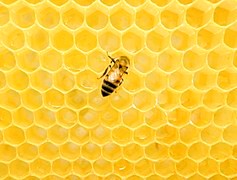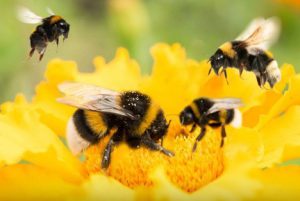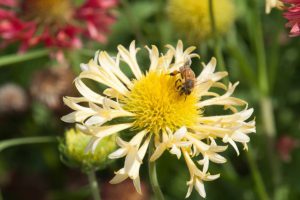Honey yields expected to see significant drop – Apiculture New Zealand

Both mānuka and non mānuka values are down and beekeepers are exiting the industry.
Honey yields are predicted to be well down this season compared with the 10-year average of 19,000 tonnes.
Final figures are not produced until the end of June. But Apiculture New Zealand chief executive Karin Kos said everyone was talking about how much the yields were down and the season was nearing its end.
She said it was no surprise, given spring was wet and cold, summer has had too much rain, flowering had been poor, bees hadn’t been out foraging and when they had there had been little to feed off.
“If I look at the beekeepers I’ve been speaking to in Auckland, Waikato, East Cape, pretty much most of the North Island, they’re saying it’s one of the worst seasons in 10 years.
“It’s a very interesting story down south …In Southland they’re reporting a bumper crop, clover and Canterbury is also looking good. So overall, I think it’s going to be a poor season yield wise.
“I know that beekeepers are just sort of working through and hoping that with a bit of fine weather at the tail end of the season, they might be able to recuperate something, but overall not a great season honey yield wise.”
Prices were also down as the honey surplus continued to haunt the sector.
Honey was seen as liquid gold in recent years and people donned beekeeper hats and white overalls and flocked to the industry. The prices of hives soared.
But Kos said now both mānuka and non-mānuka values were down and beekeepers were exiting the industry as the margins were just not there.
She expected hive numbers would continue to drop over the next two years.
“There’s been pressure on beekeepers, undoubtedly, it’s been very tough for them. And I know that we’ve seen the hives, they peaked at 918,000 in 2019. And they’ve dropped to 731,000 hives in operation for the 2022 season. And we’re expecting that drop to continue this year.
“There’s been a lot of upheaval over the past few years, the correction has been happening and is continuing to happen.
“But you know, I think if we look at international markets and international demand, there is still strong demand for our honey overseas, particularly mānuka honey.
“So I think that while it’s definitely tough time for the beekeepers at the moment, there are still some positive things on the horizon… the fact that we’ve got some free trade agreements, (16 percent tariff removal in the UK) coming into effect, all of that does actually help just improve their competitiveness overseas as well,” she said.
Kos also believed the Middle East was an interesting new market, along with the United States, which had been growing reasonably well.
“But I think one of the big factors, too, was our exporters hadn’t been able to travel over the last few years. And so now they’re able to travel freely, they’re able to actually develop and search out those new markets.
“I think that’s something we can’t underestimate. It does take time to build new markets. But I know, just talking to exporters, the ability to get out and just firm up and shore up contracts is really important.”
We are here to share current happenings in the bee industry. Bee Culture gathers and shares articles published by outside sources. For more information about this specific article, please visit the original publish source: Honey yields expected to see significant drop – Apiculture New Zealand | RNZ News





